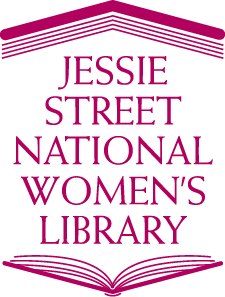Book collection
The book collection demonstrates the diversity of women’s contribution to Australian history and the importance of preserving this history. As at January 2012, there are more than 10,000 books including both Australian and non-Australian works. The non-fiction section covers all aspects of women’s issues and the fiction section’s priority is Australian women writers from all cultural backgrounds.
Donations continue to increase the collection. The substantial collection of literary works by Australian women dates from the mid-19th century to the present day.
The book catalogue is available through the website, the Libraries Australia Network and Trove, the National Library’s resource discovery service.
Breadth of collection
The collection is a rich repository of current publications, self-published works, out-of-print material and theses. Nearly three-quarters of the collection is non-fiction.
Social sciences
The majority of the books are found in the Social Sciences. This is because this classification covers the multitude of issues women have been struggling with over time and, in spite of progress, still do today.
A few examples:
- The sexual paradox: men, women and the real gender gap (2008);
- The ascent of woman: a history of the suffragette movement and the ideas behind it (2004);
- Women and family law (1992);
- Our bodies, our babies: the forgotten women’s movement (2001);
- Working for change: the movement against domestic violence (1991).
Languages
Language is another rewarding area for researchers. The titles include Dale Spender’s famous work Man made language (1980), and the equally rewarding Lily on the dustbin: slang of Australian women and families (1982).
Natural Sciences and Mathematics
In the Natural Sciences and Mathematics can be found such works as Mathematics and gender (1993), while in Applied Sciences there is a 1912 publication about the history of women physicians: Pioneer work for women by Elizabeth Blackwell (1821-1910). Another book in this classification is Reading birth and death: a history of obstetric thinking (1998).
Arts
The Arts includes artists such as the flamboyant Mirka Mora: Wicked but virtuous – my life (2000), and works about singers like June Bronhill, Strella Wilson, Dame Joan Sutherland and Dame Nellie Melba.
History and Geography
History and Geography holds many interesting biographies, especially of travellers, e.g. Embassy to Constantinople: the travels of Lady Mary Wortley Montague (1689-1762); also Janelle Brangwin’s book Not mad just sixty: driving from Lahore to London in search of the old silk road (2003).
Sally Morgan’s My place and Ruby Lanford Ginibi’s Don’t take your love to town are also here, almost side by side on the shelf.
Fiction
The collection is particularly rich in poetry and, apart from works by women such as Dorothy Porter, Gwen Harwood and Dame Mary Gilmore, includes the first book of poetry published by an Aboriginal woman: We are going (1964), written by Kath Walker (later Oodgeroo Noonuccal).
In drama, the collection has greatly benefited from the generosity of publishers such as Currency Press so that Australian women playwrights can be found from Oriel Gray to Jane Harrison, Hannie Rayson, Hilary Bell and Debra Oswald. Another useful work here is Playing with ideas: Australian women playwrights from the suffragettes to the sixties (1999). The collection of novels runs from early authors such as Ada Praed and Catherine Helen Spence, through writers like Miles Franklin and Dymphna Cusack, to current writers including Kate Grenville, Marion Halligan, Mandy Sayer, Gail Jones and Beverley Farmer. Many early works are first editions or out-of-print and some are not to be found in any other library in Australia.
Special collections
Finally, the Library holds two small special collections. One is a single donation of 110 books by or about Virginia Woolf. It includes her diaries, letters, essays and works on members of the Bloomsbury Group. The second contains 24 books associated with Jessie Street, generally owned by her. One book, however, was bought at auction in the United States and donated to the Library because it was inscribed by one of the authors to: “Mrs. Street, bravest of brave women, here’s to you, Carrie Chapman Catt, July 2, 1945”. The book is titled Why wars must cease (1935) and Carrie Chapman Catt’s co-authors included Rose Emmet Young and Eleanor Roosevelt.

